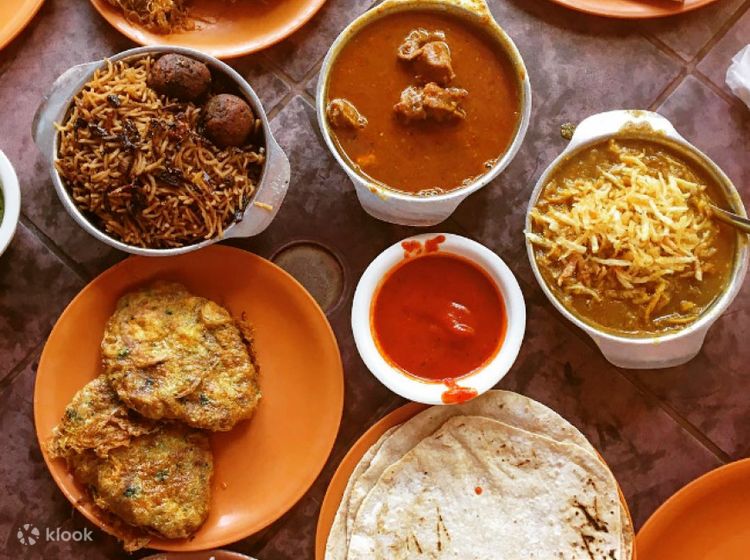Karachi, a bustling metropolis, is home to diverse communities — such as Bohra, Memons, Gujratis, Bengalis, and Madrasi Parsi. These communities and their cuisine and cultures have all been a part of the city of lights for ages — adding to its glory and versatility.
As a journalist, I’ve always been interested in exploring these diverse communities, and their food and cultures. Luckily, I stumbled upon ‘Ghar Se’ — a home-based online restaurant owned by a Parsi lady Gulnar Cowasjee.
Thrilled, I pitched the idea to my editor, and having his approval my team and I excitedly made our way to Gulnar’s home, located in Cyrus Colony, Karachi.
“It’s an old house my in-laws used to live here. So old that I decided to refurbish it, replacing the walls with heavy sandstone, and making an atrium in the centre of it. I also moved my prayer area here, it’s open calm, and peaceful,” Gulnar says as she takes me through the lovely house that bespoke history, and heritage — a retrophile’s personal heaven!
The famous ‘sugar and milk story’
Shedding light on her community, Gulnar shares the famous sugar-and-milk anecdote that has since become part of the oral and written history of the once-flourishing community in the subcontinent.
“When Parsis moved from Iran to India, Jhadav Rana was the king. To convince him that the Parsis meant no harm to the land, the Zoroastrian priest used sugar as an example. He took a pinch of sugar and mixed it with milk.
“Then the priest said: ‘We are going to blend in your culture just like this has blended in the milk. We will not give trouble to anybody,” Gulnar recites the story with a look of pride and joy.
“And Ma Sha Allah since those days, we began to move to Pakistan and have played a good role,” she smiles.
‘Ghar Se’ — bridge between Muslim-Parsi community
Talking about ‘Ghar Se’ Gulnar says: “My daughter Maira always wanted to start her own restaurant, when COVID hit in 2019, we decided to kick off our little setup by introducing ‘Ghar Se’ on social media. I was shocked seeing that many Karachiites are fond of Parsi cuisines, the response was overwhelming and I couldn’t imagine!”
The Muslim and Parsi communities have been living together in harmony in Karachi for well over decades. They existed peacefully by observing each other’s culture, and undeniably the contribution of the Parsi community throughout history has been immeasurable.
Today, the number of Parsi people is far lower than ever before, but food, as always may be a link between the two communities.
“Most of my clients are Muslims, I don’t have a great Parsi clientele. We get orders on a weekly basis from the Muslim community, Parsi cuisine is very popular among them. Even people who live overseas ask me to deliver food items to their loved ones.”
The best part about traditional cuisines is the history behind them, like ‘Karwi Roti’ is served in the Muslim community at funerals, and Parsis also have a special dish on this very occasion.
“Dhansag is served in our community at funerals. It’s like ‘daal chawal’ we add vegetables to it so one can have rice, pulses and vegetables at once. Like Dhansag, our ‘Patrani Macchhi’ is the most demanded dish in the Muslim community. It’s the dish that hit off so quickly since we started Ghar Se,” Gulnar proudly reveals.
“But why don’t we have a Parsi restaurant here in the metropolis if Karachiites are fond of Parsi cuisine?” I can’t resist asking. Immediately, the atmosphere seems to dampen.
“There was actually one, started by a Parsi couple, Pervaiz and Mahzarin Tarapore. But it has shut down now after the owners — like many Parsis — moved from Pakistan,” she says, adding that the community has gone down in numbers as, unsurprisingly, the older Parsi generation was not adaptive and open to their children marrying outside the community.
“Those who got married to other communities were not allowed to change their religion, this is why it has crumbled in the numbers,” she says.
But as the interview nears its conclusion, Gulnar has perked up and she smiles warmly at us, beaming with delight.
“We’ve never felt out of place in the Muslim cultures. We grew up with them and we never felt that we were different. We are very comfortable, and we’ve never had a complaint, Ma Sha Allah. I hope we never will,” she says optimistically.
Despite the fact that minorities are going through so much in our beloved homeland Gulnar is hoping for the better days to shine — even if she’s alone.

